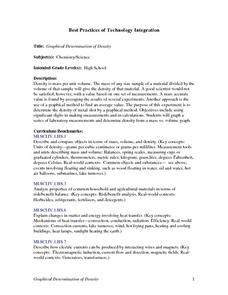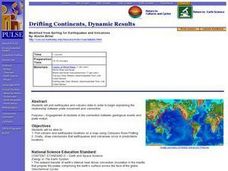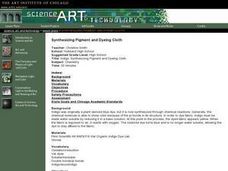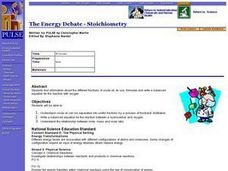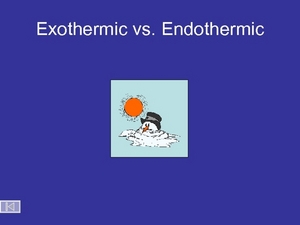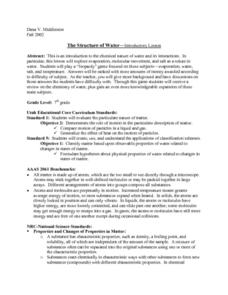Curated OER
HOW SMALL AM I? THE SCIENCE OF NANOTECHNOLOGY
Students study nanotechnology and investigate the dimensions of a nanoscale. In this nanometer study lesson students will see how truly small a nanometer is by measuring things such as a piece of hair.
Curated OER
Global Warming
Students are members of the North Carolina Environmental Management Commission. They make recommendations to the "governor" and a panel of his advisors regarding the greenhouse effect and global warming.
Curated OER
How Can We Determine the Concentration of an Unknown Solution?
High schoolers participate in experiments to help them determine the concentration of an unknown solution. They graph a standard curve and plotting the relationship between the concentration and the amount of light needed. They discuss...
Curated OER
Graphical Determination of Density
Young scholars determine the density of metal shot by a graphical method using significant digits in making measurements and calculations. Students graph a seris of laboratory measurements and determine density from a mass verses volume...
Curated OER
Root, Root, Root for the Nutrients
Students observe the growth of a seed, predict what will happen when seeds are planted without soil, and conduct an experiment using a hydroponics system.
Curated OER
Losing An Island
Students examine carbon dioxide and determine the impact of greenhouse gases on the earths spheres. In this pollution lesson students complete a lab activity to see the impact of gases on the environment,
Curated OER
Drifting Continents, Dynamic Results
Students plot earthquake and volcano data using a Compass Rose Plotting. They explain the relationship between plate movement and connection. They draw conclusions that earthquakes and volcanoes occur in predictable locations.
Curated OER
Fallout!
Students plot the locations of fallout from two disasters that polluted much of the world's air. They plot the ash fallout from the 1980 Mt. St. Helen's eruption to see what the wind patterns in the United States look like overall. Next...
Virginia Department of Education
The Rate of a Chemical Reaction
If your pupils think a catalyst is a list of their cats, then this might be the lesson for you! Young chemists study the effect of temperature, catalysts, concentration, and particle size on reaction rates during four different...
Curated OER
Pronoun Reference
In this pronoun worksheet, students read the sentences and the underlined portion of each example. Students choose the answer the best corrects the error in pronoun reference.
Curated OER
The Interactive Periodic Table of the Elements
Students study the different types of metals. In this investigative lesson students watch a demonstration on the effects of temperature on atoms and take a tour through baone matter.
Curated OER
Einstein's BIg Idea
Students discuss what the m in E=mc2 represent. They relate that mass in a chemical reaction is always conserved. Students convey that atoms rearrange themselves in chemical reactions to form different molecules and compounds.
Pingry School
Qualitative Analysis of Eleven Household Chemicals
Chemical and physical properties give compounds an identity. Learners use the identity of a compound to predict what it is. By performing different tests like solubility, flame, heat, and reactions, individuals attempt to identify an...
Curated OER
Synthesizing Pigment and Dyeing Cloth
Students create a synthetic dye and oxidize the dye and record the effects.
Curated OER
Which Brand of Air Freshener is Most Cost Effective?
Students use scientific method to determine cost-effectiveness of air freshener, and create PowerPoint presentations to share their results.
Curated OER
The Energy Debate - Stoichiometry
Students determine crude oil can be separated into useful fractions by a process of fractional distillation. They write a balanced equation for the reaction between a hydrocarbon and oxygen.
Cornell University
Chemical Reactions
Investigate the Law of Conservation of Mass through a lab exploration. Individuals combine materials to initiate chemical reactions. They monitor for signs of reactions and measure the masses before and after the reactions for comparison.
Curated OER
Exothermic vs. Endothermic
The PowerPoint opens with video footage of the decomposition of nitrogen triiodide and then explains it with diagrams. Graphs of exothermic and endothermic reactions are exhibited, as well as one for the effect of a catalyst on reaction...
Curated OER
Unknown Element Project
Students work with a partner to determine the identity of an unknown element based on given descriptions. Groups use classroom textbooks, encyclopedias, and science internet sites to identify their unknown element then write a report as...
It's About Time
Chemical Names and Formulas
Abracadabra! Provide your class with the tools to perform a chemical "magic show" as they predict the charges of various ions, determine ionic compound formulas, and make observations to determine when a chemical reaction between two...
Curated OER
The Chemical Nature of Water
Seventh graders simulate a Jeopardy game to examine the chemical nature of water. Among the topics featured are evaporation, water, salt, and temperature. finally, as review, 7th graders answer a battery of questions presented by the...
Curated OER
Speed me up, Scotty!
Pupils describe and define chemical reactions. They design a laboratory experiment, collect data and analyze data.
Curated OER
Pronoun Reference - Exercise 5
Young grammarians demonstrate their understanding of pronoun reference. They read a series of sentences and choose the best correction for the underlined words. A link to an interactive version of the exercise is provided.
Curated OER
Learning how to balance equations
Students play Chembalancer game and balance equations using the trial and error method.





